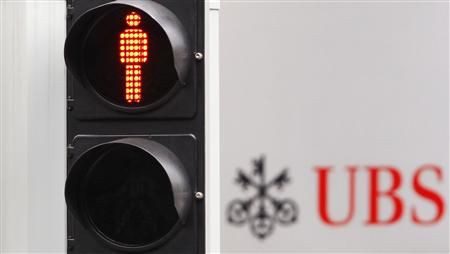Man Arrested in $2 Billion UBS Rogue Trading Probe

Swiss bank UBS AG said Thursday it has suffered a $2 billion loss stemming from unauthorized trading even as London police arrested a 31-year-old man on suspicion of fraud by abuse of position.
UBS said the matter was being investigated and that it could lead to a loss for the third quarter of 2011.
This is a major setback for chief executive Officer Oswald Gruebel, who is attempting to revive the investment banking division after it recorded $65 billion in cumulative pretax losses in three years through 2009.
The matter is still being investigated, but UBS's current estimate of the loss on the trades is in the range of $2 billion, the bank said in a brief statement just before European stock markets opened.
UBS fell 67 centimes, or 6.1 percent, to 10.26 francs by 10:54 a.m. in Zurich, bringing the drop this year to 33 percent.
The London police said they arrested a 31-year-old man in connection with the UBS probe. We can confirm we arrested a 31-year-old man at 3:30 a.m. on suspicion of fraud by abuse of position, a Scotland Yard spokesman said.
The bank said no customer accounts were affected by the rogue trading. Gruebel said in an internal memo that the bank will “get to the bottom of the matter as quickly as possible, and will spare no effort to establish exactly what has happened.”
In 2008, it was the Swiss state that saved UBS after it suffered huge losses on toxic assets held by its investment bank.
Last month, UBS announced a $2.3 billion cost-cutting plan and axed 3,500 jobs. This was in preparation of joining rival investment banks in reversing the post-crisis hiring binge.
The current episode is going to seriously hit UBS which is already trying its best to get out of the financial crisis of 2008. As the bank's losses continued to mount, it said in April 2008 that it was writing down a further $19 billion of investments in subprime and other mortgage assets. By this point, UBS's total losses in the mortgage market were in excess of $37 billion, the largest such losses of any of its peers. The bank had to raise more than $46 billion in capital from investors, including the Swiss state, to make up for the losses during the credit crisis.
Rogue trading, which involves an authorized employee making unauthorized trades on behalf of their employer, has become an issue of high concern for banks especially in recent times. In January 2008, French bank Société Générale lost approximately 4.9 billion euros closing out positions over three days of trading beginning Jan. 21, 2008, a period in which the market experienced a large drop in equity indices. The bank stated that these positions were fraudulent transactions created by a trader with the company.
Barings Bank, the oldest merchant bank in London, collapsed in 1995 after one of its employees lost $1.3 billion due to speculative investing, primarily in futures contracts, at the bank's Singapore office.
© Copyright IBTimes 2024. All rights reserved.





















